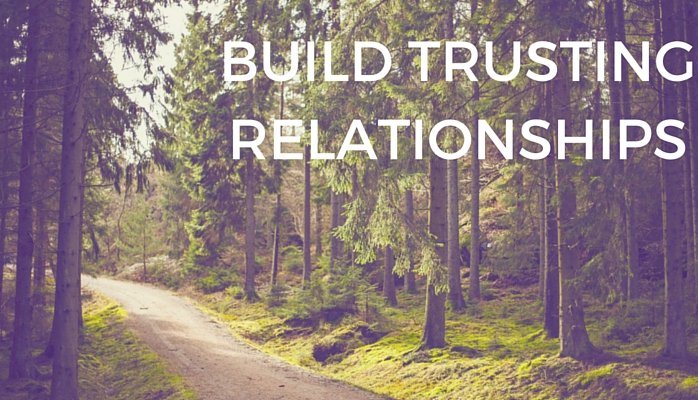|
Building trust with another person requires you to be both trusting and trustworthy.
|
I don't know anyone who considers themselves unworthy of others’ trust. Conversely, in my coaching work with clients, some people confess they find it very hard to trust others. When I hear that, I want to understand what created that thinking for them as well as their subsequent need to protect themselves.
It’s the same in the work I do with teams. Typically, something went wrong with a deliverable, client or coworker, and someone feels the need to defend themselves, their idea or their team. They worry that others will judge them harshly.
So, if being trusting and trustworthy requires us to examine our thinking and to set an intention to take an open rather than defensive stance, then at work and in life, when you want to build trust, these questions may be helpful;
It’s the same in the work I do with teams. Typically, something went wrong with a deliverable, client or coworker, and someone feels the need to defend themselves, their idea or their team. They worry that others will judge them harshly.
So, if being trusting and trustworthy requires us to examine our thinking and to set an intention to take an open rather than defensive stance, then at work and in life, when you want to build trust, these questions may be helpful;
Know yourself and your process for building trust with others:
Once you perceive someone has behaved in a way that causes you to feel defensive, what do say to yourself? What do you do next? I suggest asking yourself some of these questions;
Be willing to ask yourself hard questions:
- Do I start by trusting others until they give me a reason not to, or do they have to earn my trust?
- How will others know this while they attempt to build trust with me?
- How and when do I want to communicate with others about this to make it easier for them to win my trust?
- What core issues shaped the way I think about building trust? Are the same influences still valid or are they just habitual patterns in my thinking and behavior?
Once you perceive someone has behaved in a way that causes you to feel defensive, what do say to yourself? What do you do next? I suggest asking yourself some of these questions;
Be willing to ask yourself hard questions:
- What do I perceive was said or done?
- Which emotions is their behavior eliciting in me?
- How much of this is about them? How much about me?
- What is my intention (to build trust, be right, express my frustration)?
- How long do I want to sit with my thoughts and feelings before acting?
- What do I notice about their level of anxiety or fear? My own level of anxiety or fear?
- What do I need to do to prepare myself to show up well? Am I willing and able to remain open and curious while I continue to observe this other person's behavior to gather more evidence to confirm or deny my suspicions?
- Am I willing to objectively share my observations without judgment in an effort to gain clarity (about their intentions, skills, knowledge and beliefs)?
- How much influence does this person have in my life?
- What do I really want?


 RSS Feed
RSS Feed
